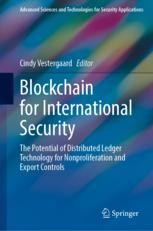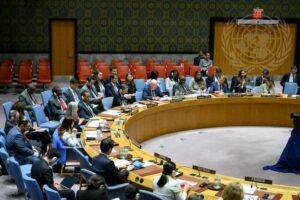Introduction
International security sits at the point where civilian and military technologies meet—when an innovation yields both benefits for humanity but also the ferocity of modern warfare. The pace of today’s innovation is disrupting all sectors, creating more urgency for practitioners and students of international security and emerging technology to interact—not only on the potential for advances to be misused but also how they can be used to strengthen international security. As such, effective implementation of treaties and controls need to strike a balance in allowing the free flow of trade with nonproliferation objectives while keeping pace with scientific and technological innovations that have the potential to disrupt both. Distributed ledger technology (DLT) is one emerging technology that offers solutions for creating greater efficiencies in tracking nuclear, biological, chemical and dual-use materials in line with national and international reporting obligations.

You can order the book Blockchain for International Security through Springer International Publishing here.



